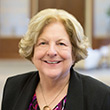Economics and Personal Finance Courses: Complements Not Substitutes
Personal finance education is important. Everyone agrees that managing personal finances is an important life skill that, used properly, can result in a more comfortable life and avoid much grief. To that end, there has been a national effort to mandate personal finance education in every state. In 1998, only 14 states required personal finance standards to be implemented within their schools’ curriculums, according to the “Survey of the States (PDF)” report. As of 2022, that number had risen to 40, according to the biennial survey by the Council for Economic Education.
But there is a risk associated with these mandates. With a finite number of hours in a school schedule and many subjects to teach, administrators, teachers and curriculum directors must make sacrifices when they allocate a scarce education resource (classroom time). As a result, administrators too often see economics and personal finance as substitutes and drop time spent on econ; that is, mandating personal finance pushes out economics instruction.
In reality, the subjects are not substitutes, and we shouldn’t sacrifice economics for personal finance. Economic reasoning can be used to make decisions in all areas of life, but especially when making personal finance decisions. In fact, personal finance can be viewed as the application of the economic way of thinking to everyday decisions. If anything, economics and personal finance are complements, not substitutes.
Economics Is a Core Subject in Social Studies
Economics is one of the core disciplines in social studies. Economics standards are part of the College, Career, and Civic Life (C3) Framework developed by 20 states (five of the states are part of the Federal Reserve Bank of St. Louis’ district) and published by the National Council for the Social Studies (NCSS). NCSS and its membership believe that social studies, including economics, prepares students for their postsecondary futures. This includes “the disciplinary practices and literacies needed for college-level work in social studies academic courses, and the critical thinking, problem solving, and collaborative skills needed for the workplace,” according to a revised NCSS position statement published in 2016.
“The National Council for the Social Studies reaffirms that an excellent education in social studies is essential to civic competence and the maintenance and enhancement of a free and democratic society,” the statement says.
The economic way of thinking—applying informed decision-making and cost-benefit analysis and recognizing opportunity cost—is at the core of the economics standards. This content is applicable to decisions students will make as consumers, employees, employers, savers, investors and citizens.
Economics Shows the Big Picture beyond Personal Finance
While it may be challenging to find space in the school year for both personal finance and economics, both contribute in important ways to students’ education. Learning economics has added benefits: Students’ understanding expands beyond their personal buying and spending to the issues we face living in a global economy. As the economy goes through periods of growth and recession, having economics knowledge helps people understand what’s happening around them and how they fit into the larger picture.
The Federal Reserve Bank of St. Louis (along with other Reserve banks) offers a wide variety of practical, free lessons and resources for teachers to incorporate economics, including personal finance, into their classroom instruction.
Here are just a few examples of important economic content, and a few resources to help students learn about some of those concepts.

“Once Upon a Decision” is part of the St. Louis Fed Ella's Adventures series.
Making decisions
Developing strong decision-making skills is important to all aspects of life. Poorly informed decisions and policy can have unintended consequences. Applying cost-benefit analysis can help people make better-informed decisions.
Learning tools
“The Art of Decisionmaking” online module provides five steps for making a careful decision.
The “Once Upon a Decision” online module for elementary students introduces a five-step decision-making process.
Investing in yourself
Investment in human capital generally results in higher income and can help insulate people from unemployment to some extent. The decisions young people make about staying in school and seeking postsecondary training or education have significant consequences over their lifetimes.
This doesn’t mean that everyone should go to college. It does mean that postsecondary education and training are essential. Teaching about investment in human capital is relevant to economics, personal finance, and career and technical education.
Learning tools
“Invest in Yourself” is an online module for upper elementary school students.
“It’s Your Paycheck—Lesson 1: Invest in Yourself” is an online module for high school students.
Both modules emphasize that people invest in human capital through education, on-the-job training and practice and that their investments pay dividends.
Inflation
Inflation erodes purchasing power. Understanding the difference between nominal (values measured in current prices) and real (adjusted for inflation) interest rates is important for financial decision-making.
But not everyone has that understanding. For example, respondents in financial capability surveys are frequently asked this question:
Imagine that the interest rate on your savings account was 1% per year and inflation was 2% per year. After one year, how much would you be able to buy with the money in this account?
- More than today
- Exactly the same
- Less than today
- Do not know/Refuse to answer
According to 2011 work by Annamaria Lusardi and Olivia S. Mitchell,See the 2011 Journal of Pension Economics and Finance article “Financial literacy and retirement planning in the United States” by Annamaria Lusardi and Olivia S. Mitchell. fewer than two-thirds of those surveyed in the United States were able to answer the multiple-choice question correctly (“C”), and that results in significant consequences for them.
Learning tools
The “Inflation” episode of the Economic Lowdown Video Series below provides an introduction to inflation.
The “Getting Real About Interest Rates” episode of the Economic Lowdown Podcast Series explains nominal and real interest rates.
Fiscal and monetary policy
Fiscal policy and monetary policy have an impact on household budgets, saving, spending and investment decisions. Fiscal policies are the spending and taxing actions taken by the federal government (Congress and the president) to influence the economy. Monetary policies are the actions taken by the central bank (the Federal Reserve) involving the use of interest rate or money supply tools to achieve goals, such as maximum employment and stable prices.
Learning tools
In the online module “Government Budgets,” students take on the role of a freshman lawmaker in the U.S. House of Representatives trying to serve their constituents’ goals and the long-term goals of the U.S.
Teachers and students can earn digital badges:
- An Educators Guide to Monetary Policy for teachers
- A Citizen’s Guide to Monetary Policy for students
And they can learn about the Fed’s monetary policy tools and how the central bank’s policy decisions transmit through the economy.
Measuring the economy
Gross domestic product (GDP) is a measure of how much the economy produces in a year. There’s a lot to learn about GDP, and it’s important because it tells us whether the economy is growing or slowing over time. If we are comparing year-over-year economic production, we use GDP adjusted for inflation—called real GDP. We also use real GDP to determine per capita real GDP, which is sometimes used as a proxy for the standard of living.
“GDP and Pizza” videos cover some key concepts about gross domestic product.
Learning tools
Watch the “GDP and Pizza Video Explainers,” a series of short videos which provide an overview of this very important measure of economic production.
Other resources to help teachers and parents with economic and personal finance education can be found at stlouisfed.org/education. Our students, particularly the most vulnerable, need to understand economics to better navigate our economy and improve their financial stability.
Note
- See the 2011 Journal of Pension Economics and Finance article “Financial literacy and retirement planning in the United States” by Annamaria Lusardi and Olivia S. Mitchell.
This blog explains everyday economics and the Fed, while also spotlighting St. Louis Fed people and programs. Views expressed are not necessarily those of the St. Louis Fed or Federal Reserve System.
Email Us



